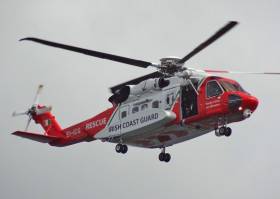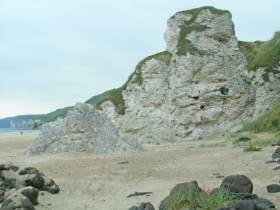Displaying items by tag: Cliff Fall
Man Airlifted To Hospital After Lahinch Cliff Fall
#CliffFall - Independent.ie reports that a 23-year-old man was airlifted to hospital after falling 40ft into the sea from a cliff near Lahinch early this morning (Sunday 5 June).
Shannon's Irish Coast Guard helicopter Rescue 115 launched to the scene after the Doolin coastguard unit had difficulty recovering the man from the sea.
It's understood that the casualty was with friends at the cliff top around 5am when he fell and lost consciousness in the water.
Portrush Lifeguard Aids Man Injured In Whiterocks Cliff Fall
#CliffFall - An RNLI beach lifeguard aided a man who fell onto rocks while walking a steep cliff path on Whiterocks beach in Portrush yesterday afternoon (Wednesday 30 March).
The call for help came after a member of the group the man was with observed him fall just before 1pm and raised the alarm.
After arriving on scene, senior RNLI lifeguard Jamie Russell immediately began to administer casualty care to the conscious man, who had fallen some 12 feet from the coastal path. He was joined on scene by a paramedic and they continued to provide assistance.
However with an incoming tide and a challenging location, it was decided that removing the casualty would require the assistance of Coleraine coastguard.
The man was secured on a stretcher and carefully moved by the group around the rocks to a waiting ambulance.
Commenting on the callout, RNLI lifeguard supervisor Karl O’Neill said: "This incident was quite a challenging one to respond to due to the nature and location of the fall.
"Thankfully the man was conscious but we did not want to risk any further discomfort or injury by moving him ourselves. I would like to thank members of Coleraine coastguard for their assistance."
Whiterocks is one of five beaches being patrolled by RNLI lifeguard during the Easter holidays, continuing till Monday 4 April, as previously reported on Afloat.ie.






























































